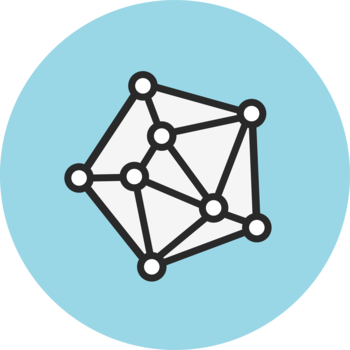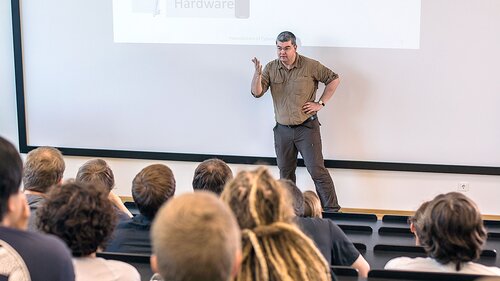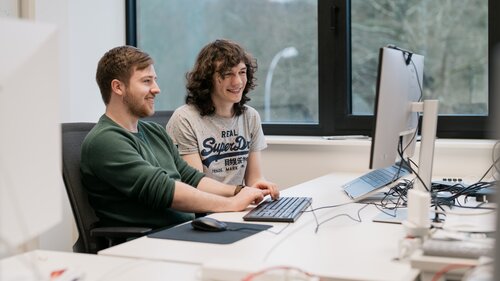OUR RESEARCH AREAS
Our six research areas cover foundational theories as much as practical defenses, combining algorithmic innovation, secure system design, threat detection, formal verification, and the human factors of security. Together, they reflect our commitment to addressing the most pressing challenges in information security.

Algorithmic
Foundations and
Cryptography
Research on algorithms forms the foundation of many technological innovations. We explore how complex computational problems can be solved faster, more securely, and more efficiently. Our researchers develop cryptographic methods that can resist quantum attacks, investigate quantum-based techniques, and design ways to securely process sensitive cloud data without third-party access.

Trustworthy
Information
Processing
Digital technologies are part of our daily lives – from chatting and shopping to visiting the doctor. In the process, people generate vast amounts of data that ought to be processed securely and fairly. At CISPA, we develop methods to protect private and sensitive information without limiting innovation, focusing on privacy guarantees, resilient machine learning, and federated learning to build trustworthy systems.

Reliable
Security
Guarantees
Today’s IT security often feels like a never-ending arms race between attackers and defenders. At CISPA, we aim to break this cycle. Using formal methods based on precise mathematical models, we can systematically eliminate entire classes of attacks. Our researchers develop tools for automated analysis, runtime monitoring, and secure system design — making strong, reliable security guarantees a reality.

Threat
Detection and
Defenses
To protect complex IT systems, we first need a deep understanding of potential attack vectors. At CISPA, we develop methods to reliably detect, predict, and explain threats – even those using evasion techniques. Our research spans DDoS defense, security for industrial control systems, and software protection, aiming for precise detection, minimal false alarms, and autonomous system defenses.

Secure
Connected and
Mobile Systems
Connected systems are the backbone of critical infrastructures such as water and power networks, but their growing complexity also increases their attack surface. At CISPA, we design secure, reliable, and privacy-preserving system architectures. Our research spans software analysis and testing, anomaly detection, and wireless security bridging algorithmic challenges with real-world system building.

Empirical and
Behavioral
Security
Understanding real-world threats is key to building safer technologies. At CISPA, we analyze attacks on critical web applications and user credentials, combining large-scale measurements with empirical research methods. Our research focuses on web security and usable security, aiming to create tools that help developers and users prevent attacks — making security not just stronger, but easier to use.


